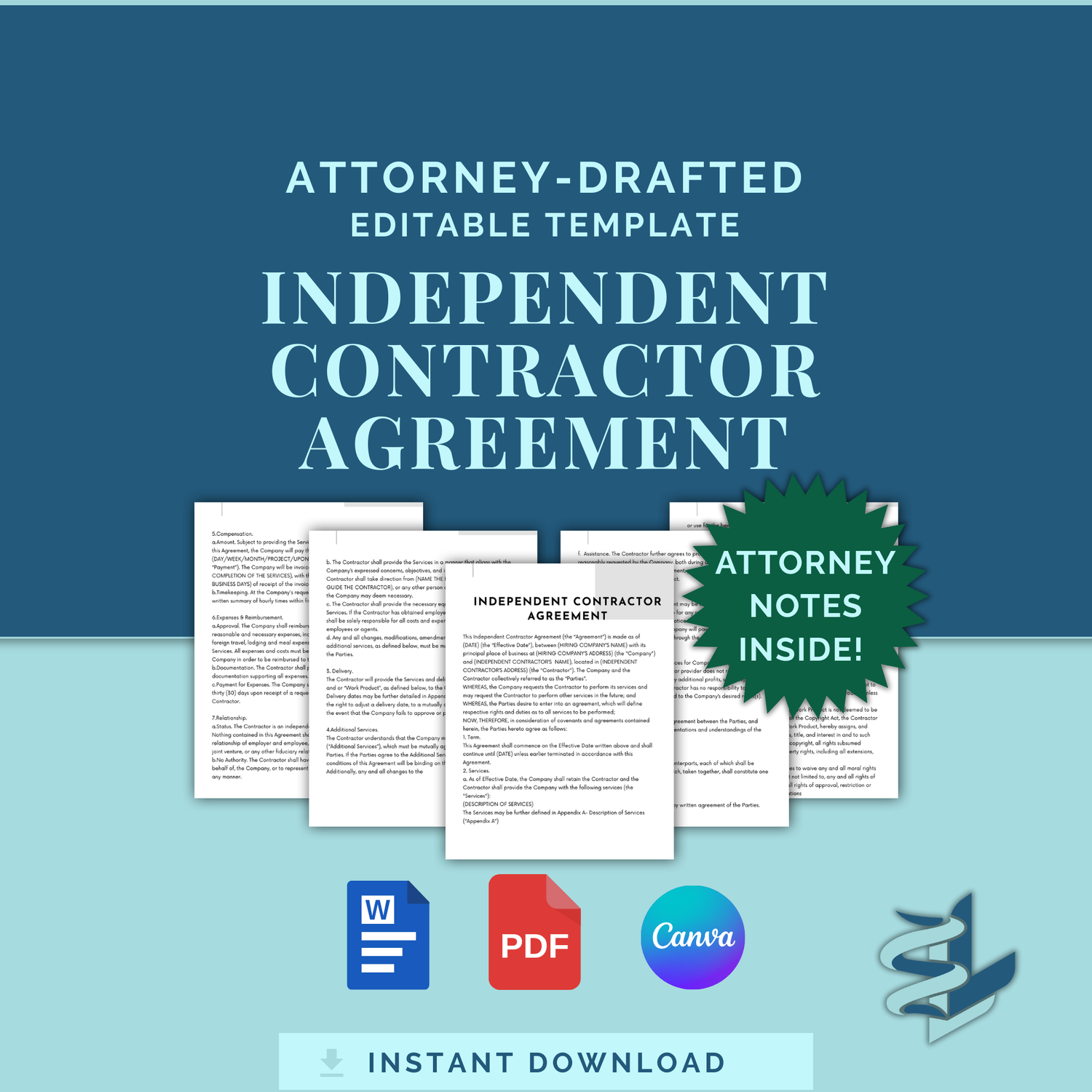
5 Common Mistakes to Avoid in Every Music Contract
In the music world, the words in your contract are just as important as the lyrics in your song. It’s no secret that the music industry is fast-paced and very competitive; therefore, having a solid contract is one less thing to worry about, ensuring that all parties involved are protected and fairly compensated. So, whether you are an artist, producer, or manager, navigating the complexities of music contracts can be challenging. However, having valuable resources such as a music attorney or attorney-drafted contract template (shameless plug) can help protect your interests. Here, we’ve outlined five common mistakes to avoid in every music contract, helping you avoid potential pitfalls.
- Failing to Clearly Define the Scope of Work. One of the most frequent errors in music contracts is the failure to clearly define the scope of work and deliverables. This includes specifying the number of tracks, production standards, deadlines, and any additional services like mixing and mastering. Ambiguity in these areas can lead to misunderstandings and disputes. Ensure that all terms are detailed in the contract to provide a clear framework for the project, leaving no room for interpretation.
- Overlooking Financial Terms and Royalties. The financial aspects of a music contract are often complex and can lead to significant issues if not properly addressed. This includes payment terms, royalties, advances, and recoupment clauses (when/if you’ll start seeing your royalties). Artists may find themselves in unfavorable positions if they do not understand how royalties are calculated or how advances are recouped. Clearly outline how and when payments will be made, what percentage of royalties each party will receive, and the conditions for advance repayments to avoid future conflicts and ensure fair compensation.
- Ignoring Intellectual Property Rights. Intellectual property rights are a critical component of any music contract, yet they are often overlooked or poorly defined. The contract must clearly state who owns the rights to the music and any associated content, including publishing rights (compositions), master recordings (sound recordings), and distribution rights. Failing to address these aspects can lead to legal battles and loss of control over your work. Ensure the contract specifies the ownership, duration of rights, and permissions required for using the content to protect your intellectual property.
- Neglecting Termination and Exit Clauses. Another common mistake is neglecting to include clear termination and exit clauses. These clauses outline the conditions under which the contract can be terminated and the process for doing so. Without these provisions, parties may find themselves locked into unfavorable agreements or face disputes when attempting to exit the contract. Artist’s nightmare scenario: An artist is locked into a multiple album deal for several years, where the albums will be released at the sole discretion of the label. Make sure your contract includes well-defined termination and exit clauses ensures that all parties understand the circumstances under which they can part ways, providing a safety net for unforeseen circumstances.
- Excluding Dispute Resolution Mechanisms. Disputes are almost inevitable in any business relationship, and having a clear process for resolving them is essential. Many music contracts lack a dispute resolution clause, leaving parties to navigate conflicts without a predefined path. Whether through mediation, arbitration, or legal proceedings, it is crucial to agree on a method for handling disagreements. Including a dispute resolution mechanism in your contract promotes a smoother, more professional relationship and can save time, money, and stress.
As a member of the music industry, you can see how avoiding common mistakes in music contracts is vital for protecting your interests and ensuring successful collaborations. By clearly defining the scope of work, addressing financial terms, safeguarding intellectual property rights, including termination clauses, and setting up dispute resolution mechanisms, you can create robust agreements that benefit all parties involved.
At Spring Up Legal Locker, we offer more than just customizable contract templates tailored to the unique needs of artists; we also provide useful Guides and Checklists to help you focus on your creative work, while ensuring your legal interests are protected. D
BTW, Still looking for additional info? Visit our blog regularly for insights on this and related topics. Also, don’t forget to explore our extensive collection of attorney-drafted music contract templates and contract packs for your next project

